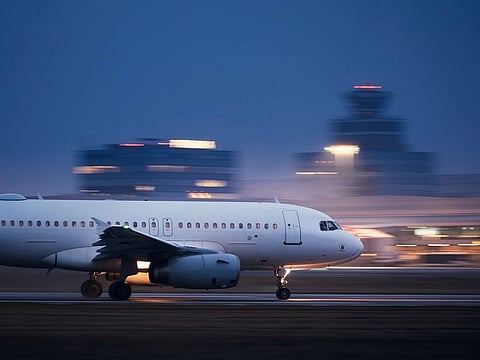Middle East's aviation sector must fine-tune resilience as Israel-Gaza war casts a cloud
Dire Israel-Gaza crisis has set off circumstances that will need new ways to handle

The escalation of hostilities between Israel and Gaza has brought about significant challenges and disruptions, not only on a humanitarian and geopolitical scale but also within the wider aviation ecosystem in the Middle East and beyond.
Here, I will examine changes in flight patterns, the role of airlines, and the implications for air traffic management and airport operations. It also explores the long-term ramifications on the aviation industry, with a focus on safety, security, and economic repercussions.
The Middle East, being a crucial hub for global air traffic, has witnessed disruptions, rerouted flights, and heightened security measures.
Impact on flight patterns and air traffic management The Israel-Gaza war has necessitated the rerouting of numerous flights to avoid conflict zones, leading to increased flight times, fuel consumption, and operational costs for airlines. Air traffic management systems have been put to the test, as they work tirelessly to ensure the safety of passengers and crew while navigating through restricted airspace.
This has also resulted in increased pressure on neighboring countries' airspace, potentially leading to congestion and delays.
Airlines and operational challenges
Airlines operating in the region have faced a multitude of challenges, from deciding whether to continue services to affected areas to managing the logistical complexities of rerouted flights. The financial implications are significant, as airlines grapple with the costs associated with longer flight paths, additional fuel requirements, and potential decreases in passenger demand due to safety concerns.
Airport operations and security
Airports in the region have also been impacted, with heightened security measures in place to ensure the safety of passengers, crew, and aircraft. This has led to longer wait times, additional screening processes, and potential disruptions to airport operations. The need for robust security protocols is paramount, as airports navigate the delicate balance between ensuring safety and maintaining efficiency.
Disruption to air cargo
The Middle East is a crucial node for global air cargo, and the conflict has resulted in rerouted flights and potential delays. This affects the timely delivery of goods, including aviation parts and components, which can have a cascading effect on manufacturing and maintenance schedules worldwide.
Increased costs
The additional operational costs associated with longer flight routes and increased fuel consumption for rerouted flights are not limited to passenger airlines. Cargo carriers also face these challenges, which lead to increased shipping costs. These costs may eventually be passed down the supply chain, affecting manufacturers and end-users.
Economic repercussions
The disruptions caused by the Israel-Gaza conflict have economic ramifications that extend beyond the immediate region. Airlines may face financial strain due to increased operational costs and potential decreases in passenger demand. The tourism industry, which is closely tied to aviation, may also experience a downturn, impacting economies that rely heavily on tourism revenues.
Long-term implications for aviation safety The Israel-Gaza conflict underscores the critical importance of aviation safety and security. The industry must learn from these challenges and continue to invest in technologies and processes that enhance the safety and security of air travel.
Collaborative efforts between countries, airlines, and aviation authorities are crucial to developing resilient strategies that can mitigate the impact of geopolitical conflicts on the aviation ecosystem.
This war serves as a stark reminder of the vulnerabilities and complexities of the aviation sector in the face of geopolitical unrest. The impact on flight patterns, airline operations, airport security, and the wider economy cannot be understated.
As the industry navigates these turbulent post-pandemic times, the lessons learned will be invaluable in strengthening the aviation ecosystem, ensuring its resilience, and safeguarding the future of air travel.
Sign up for the Daily Briefing
Get the latest news and updates straight to your inbox








